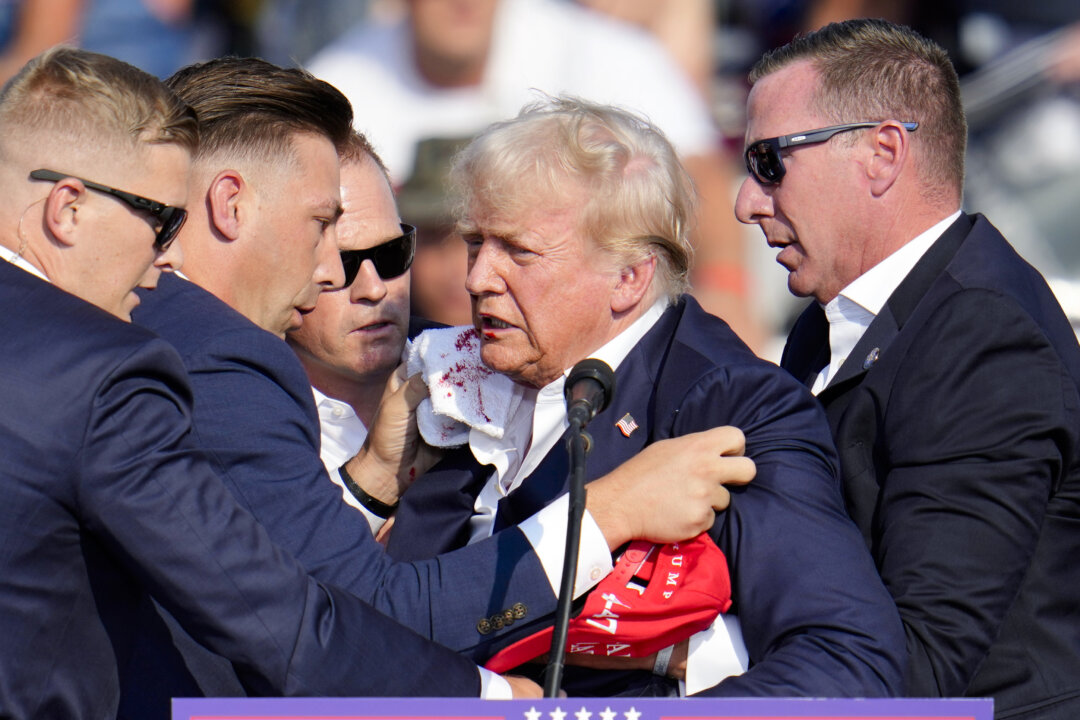The report contained new interviews with local law enforcement officials during the July 13 incident.
The House task force investigating the July 13 assassination attempt targeting former President Donald Trump concluded that the incident was “preventable,” releasing new testimony from local law enforcement officials who provided accounts of communications and operational failures at the rally in Butler, Pennsylvania.
Released on Oct. 21, the report concluded that there was a “lack of planning and coordination” between the U.S. Secret Service and its local law enforcement partners during the Trump rally.
The Secret Service, it found, “did not give clear guidance to the relevant state and local agencies about managing areas outside the secure event perimeter, and there was no joint meeting on the day of the rally between [the Secret Service] and all state and local law enforcement agencies assisting” the federal agency.
The House task force report mostly echoes findings made by a Senate Homeland Security panel report and an internal Secret Service report, both of which were released in September.
The report included findings that were already publicly released. But it also contained new interviews with local law enforcement officials in Butler County about how the Secret Service failed to perform on July 13.
Unnamed officials in Butler provided more details regarding how the gunman was first spotted by law enforcement and that nothing was done until he opened fire upon the rally, clipping Trump’s right ear with a bullet while killing a rally attendee and severely injuring two others.
As one example, one emergency services official told the panel that he sent a text message to his colleague that the shooter was seen with a rangefinder at about 5:17 p.m. However, the colleague did not see the message until more than 20 minutes later, at about 5:40 p.m.
The report also included new testimony from the officer who attempted to climb onto the roof of the building where the gunman had perched before he opened fire. Days after the shooting, local officials confirmed that an officer tried to get on the roof but that the shooter pointed his weapon at him, forcing the officer to back down.
Police body camera footage of the incident was also released, showing the officer getting a boost from another law enforcement official in an attempt to climb onto the roof. The shooter could not be seen in that clip.
That unnamed official told the panel that as he attempted to move onto the roof, the gunman “slowly turned on his waist” and “slowly turned around.”
“And as I came up, that’s when he pointed his firearm in my face,” the official said. “And at that time, I could see, you know, he had a bookbag with him, I could see mags.
“I knew he had a long gun, like an AR platform. And as I’m coming up and he’s got the gun pointed at me, I don’t know if I reach for my gun, if I slip, but all I know from that point is I’m looking at him, and all my weight is on my, like, arms, my hands, and I don’t have a grip.”
“The next thing I know, I smack against the ground and fall,” the official said.
“I just start yelling out to the guys that are there, I yell on the radio right away. I start saying, you know, ‘South end, He’s got a long gun. Male on the roof.’ I just kept repeating, ‘He’s got a gun. He’s got a long gun.’ I’m telling the guys that are around, like, ‘He’s right up there, guns up, eyes up,’ still screaming on the radio.”
Local and state law enforcement officials who spoke to the House panel were largely critical of the lack of a unified command and communications post to oversee security at the Trump event.
They also said that there was no unified briefing between the federal and local partners, which could “have led to gaps in awareness among state and local law enforcement partners as to who was stationed where, spheres of responsibility, and expectations regarding communications during the day,” according to the report.
The Secret Service has not issued a comment on the House panel’s report. The Epoch Times contacted the agency but received no response by publication time.
The acting director of the Secret Service conceded in August that the agency failed in its mission to protect Trump during the rally, that it did not properly secure the rally site, and that several agency staffers would face punishment over the incident.
Two months later, federal law enforcement officials said that Trump was the target of a second assassination attempt, this time at his Florida golf course while he was playing golf. The Secret Service said that an agent who was protecting Trump saw the barrel of a rifle sticking out of a perimeter fence on Sept. 15 before he engaged with the suspect and opened fire, prompting him to flee.
Ryan Wesley Routh was later arrested and charged with multiple felony counts in connection to the incident and has pleaded not guilty. Prosecutors say that Routh had authored a note that indicated he wanted to assassinate the former president.

